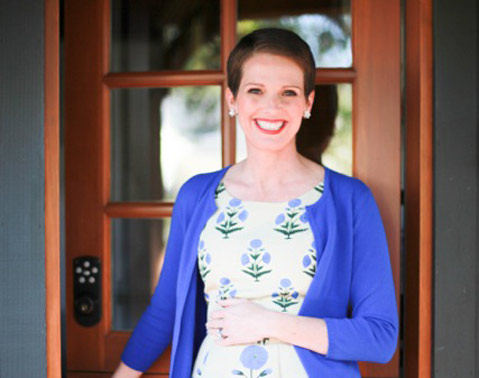Telling Your Kids You Have Cancer
How to Discuss Cancer with Your Kids

Prior to my diagnosis of breast cancer in 2010, I worked as both an adult and pediatric nurse in hospice and palliative care. Yes, I cared for dying children. And yes, it’s incredibly difficult work. However, for whatever reason, I was given the capacity to be present with dying children and their families at one of the most powerful and sacred times in their lives.
Having to tell our preschool-age daughter about my breast-cancer diagnosis was emotionally overwhelming … to say the least. I was quite surprised by how anxious I was about telling her, considering the fact that I had delivered far worse bad news as a hospice nurse.
Because discussing cancer with your child is such an emotionally charged situation, my personal experience has enabled me to be empathetic with parents who try to hide the truth from children.
All too often, parents avoid discussing a cancer diagnosis with children because they assume that “children can’t understand what is happening” or because they believe that “children shouldn’t be exposed to something so awful.” Exposing children to cancer is indeed brutal and heart-wrenching (don’t I now know it!), but children as young as age 2 are able to understand what is happening to them. The key is to communicate with them in developmentally appropriate ways.
Avoidance may feel better in the short term, but it has the potential to do long-term damage. Even when a cancer diagnosis is not formally discussed, children know that something has happened and are consequently left alone with distressing information. This aloneness forces children to draw inaccurate conclusions or develop maladaptive ways of dealing with a cancer diagnosis. While it may seem hard to believe, a child’s imagination has the capacity to create things that are far worse than the reality.
The silver lining is that there are helpful tools for talking with children about cancer:
1. Plan ahead, and think through what you are going to say.
2. Choose a time when you are calm, your children are well rested, and no one is rushed.
3. Describe the disease in factual, truthful, and developmentally appropriate language.
4. Tell your children that cancer is not in any possible way contagious.
5. Reassure your children that they did absolutely nothing to cause the cancer.
6. Encourage your children to ask questions (frequently), and answer them to the best of your ability. If there is something that you don’t know the answer to, tell them that you will find out and get back to them.
7. Describe how their lives may change: for example, a disruption of routines.
8. Encourage your children to share their feelings.
9. Tell your children that they will be cared for by someone they know (and identify that person).
Telling children about a cancer diagnosis in a family is emotionally difficult; however, there are professionals to help you every step of the way. Additionally, many hospitals and cancer centers have (wonderful!) professionally led support groups for children where they can ask questions and talk about their feelings and share experiences. The Cancer Center of Santa Barbara with Sansum Clinic offers such support groups (ccsb.org).
This is the second article in a four-part series by Hollye Jacobs to run during October, which is Breast Cancer Awareness Month. Jacobs is a full-time writer and speaker, and as a nurse, cofacilitates support groups and consults with children of parents who have cancer. For more information, go to Jacobs’ blog, thesilverpen.com, and watch a video of her work on independent.com.



